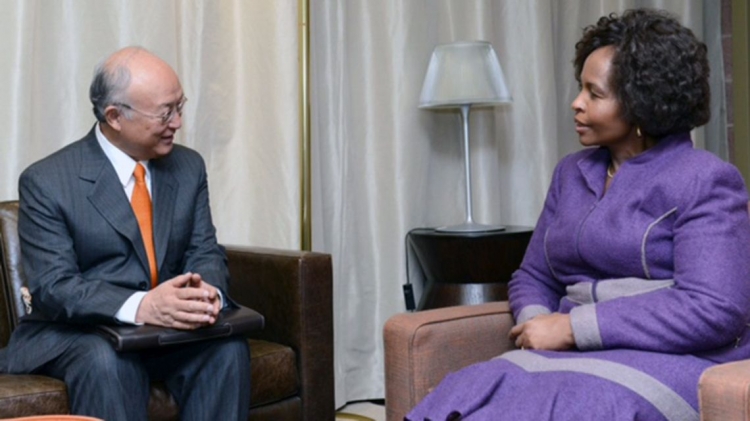Ensuring radiation safety is key to harnessing the many benefits of nuclear and radiation technologies, said IAEA Director General Yukiya Amano in his keynote address at the 14th Congress of the International Radiation Protection Association (IRPA) in Cape Town, South Africa, earlier this week.
Nuclear technology is used for a variety of peaceful applications, and it offers “enormous benefits in very many areas of our lives, including medicine and energy generation, and in many sectors of industry,” he said. “Every care must be taken to ensure that the use of radioactive materials poses no undue hazard to the public or the environment.”
Stringent safety measures must underpin the use of nuclear technology, be that for the generation of electricity, or wider nuclear applications in medicine, industry and other areas. Looking at the nuclear accidents at Chernobyl and Fukushima, Mr Amano said: “The key lesson from both accidents for everyone involved in nuclear power – plant operators, governments and regulators – is that safety can never be taken for granted. Complacency must be avoided at all costs.”
Global framework for safety
Ensuring the safety of everyone involved in activities involving radioactive sources and radiation is central to the work of the IAEA and IAEA Safety Standards have contributed to establishing a strong global framework for safety. He noted that implementing them is essential for maintaining public confidence in nuclear technology.
Mr. Amano emphasised that “effective international cooperation on safety is vital” and underlined the importance of working closely with partners such as IRPA, the United Nations Scientific Committee on the Effects of Atomic Radiation and the International Commission on Radiation Protection to strengthen radiation safety.
Describing the IAEA’s work over the past six decades, Mr Amano said: “Our work has evolved over the years from an initial focus on safety at nuclear power plants, to encompass safety at all types of facilities, and in all types of activities in which radiation and radioactive sources are used.”
Mr Amano commended the important contribution to radiation protection throughout the world by IRPA that is celebrating its 50th Anniversary at the Cape Town event. “IRPA is a valuable platform that enables scientists, engineers and regulators to exchange best practices in nuclear safety,” he said.
Meeting students
At another speaking event organized at the North-West University today, Mr Amano discussed the fundamental importance of science and technology for development. “Technological advances are a must,” he said, to tackle the challenges facing humankind today.
“Those challenges include generating enough energy, tackling climate change, producing enough food to provide for a growing world population, and making the benefits of modern health care available to everyone.” The IAEA is active in all of these areas, he said.
Mr Amano talked with the students about various IAEA-supported projects in Africa, including the sterile insect technique to combat tsetse flies, fruit flies and the false codling moth, protecting fresh food through irradiation, as well as the IAEA’s work in cancer control.
“Our work in the medical field in South Africa has included improving quality assurance in radiotherapy centres. In the coming years, our partnership will focus on diagnostic imaging and nutrition,” Mr Amano said.
High level meetings, visiting research labs
During his three-day visit to South Africa, Mr Amano met with Minister of Energy Tina Joemat-Pettersson and Minister of International Relations and Cooperation Maite Nkoana-Mashabane.








